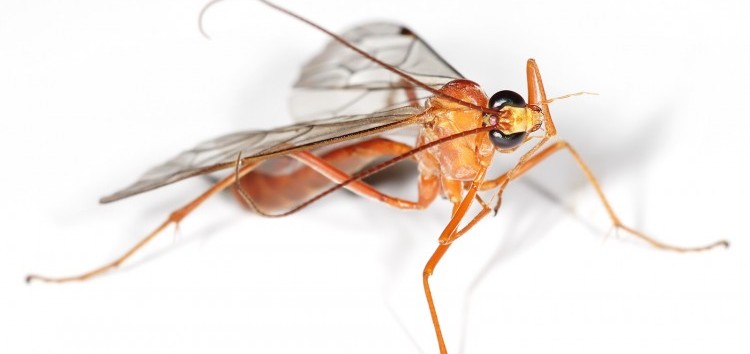
Though parasitic wasps may not sound like the most appealing of creatures, they could be the very saviors of California’s citrus industry. Through ecological pest control the U.S. Food and Drug Administration is hoping to safely and efficiently deter the small pests known as Asian citrus psyllids through the use of natural enemies. The pests can carry a disease known as citrus greening, which has already invaded and destroyed just shy of 100,000 acres of Floridian citrus. Determined not to see the same demise, California is putting into effect a program that breeds and raises these parasitic wasps (Tamarixia) by the tens of thousands to be released throughout the state as a natural buffer against the potential citrus blight at hand.
Ecological pest control can often be a healthy alternative to chemically manufactured pesticides, but it can be just as dangerous as effective. In this particular instance of ecological pest control, a species is being imported from Pakistan, where the wasps reside, and being mass reproduced by the millions to be released into the wild. And while they are being released with beneficial intent, invasive species are a risky business. However, over decades of Asian citrus psyllid spreading the disease huanglongbing (HLB) across multiple continents, including North America, it is evident that there is little risk in this parasitic insecticide straying from the task at hand. These little pest-killers have been used in the efforts to deter the bacteria and the pest that distribute it for years.
The pests have found their way to Eastern California but have yet to pose any serious danger to the commercially grown citrus. Only one instance has been reported of the disease, but it was on an illegally imported tree. But The California Department of Food and Agriculture isn’t taking any chances.
Breeding, raising, and distributing the wasps is well worth the effort and the money for those who fear the potential fate of the Californian citrus, a two billion dollar market that dominates the area. For the multi-million dollar project, a lot is at stake. Since 2012, parasitic wasps have been distributed along California’s coast from North of Las Angeles to South and East of San Diego. And though the wasps are natural-born psyllid killers, the native psyllid communities will be left in tact. The USDA assured this after a long application process in which the Tamarixia were tested prior to becoming California’s newest biocontrol mechanism.
The eco-friendly alternative could not only benefit the environment but also save the citrus industry considerable amounts of money. Ecological Pest Control reduces the spread of pests without the use of pesticides: pesticides that can result in future health problems. The wasps could prevent detrimental losses of citrus as well as save on the cost of pesticides both currently and in the future, as the wasps will stay in the area for years to come, reproducing and keeping the fruit trees HLB free. Despite the past affliction resulting from the pest-carried-disease, California is confident through this program that they can avoid Florida’s fate. And for the sake of citrus lovers everywhere, we’re rooting for them.
By Daniel Robinson
Sources:
NationalGeographic
UFL
EdmontonJournal

